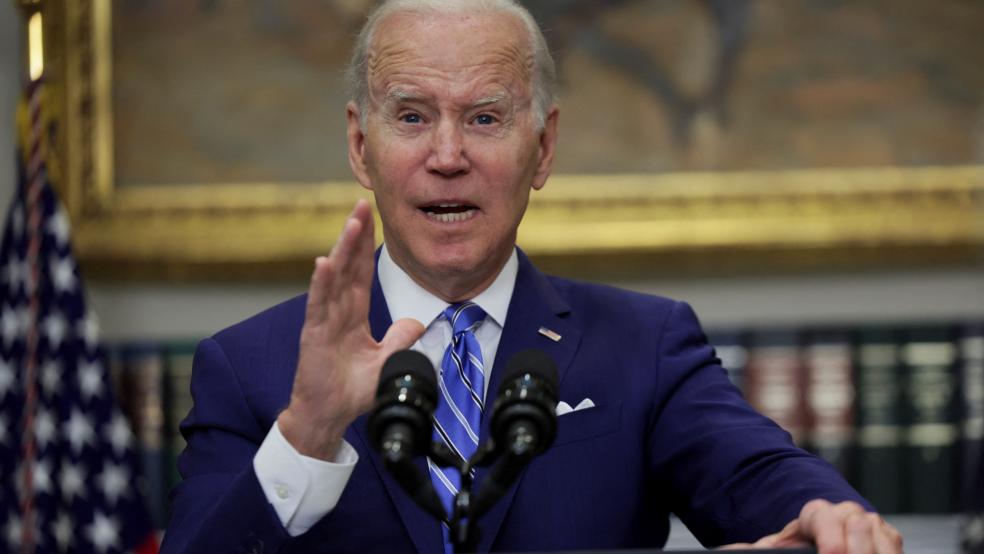President Joe Biden’s budget plan due to be released on Thursday reportedly proposes to cut deficits by nearly $3 trillion over the next 10 years — more than the $2 trillion the president promised in his State of the Union address last month.
Biden is scheduled to talk about his budget at an event in Philadelphia tomorrow, but the White House told reporters Wednesday that the plan would propose to cut deficits by more than previously expected — and by much more than previous Biden budget requests, which aimed to cut deficits by more than $1 trillion over a decade.
Biden’s budget request comes as he prepares to square off with Republicans over debt and spending levels. Congress will need to raise the federal borrowing limit this year, and House Republicans have sought to force Biden to accept spending cuts in exchange for doing so. In the buildup to a likely showdown later this year, Biden has sought to claim the mantle of fiscal responsibility and contrast his economic agenda with that of Republicans, whom he has called on to lay out their own budget proposal and spending cuts.
In the absence of a GOP plan, the White House has claimed that various Republican proposals would increase the debt by more than $3 trillion. Biden’s new budget thus paves the way for the president and the White House to portray the two budget plans as diametrically opposed. The president’s budget, which we will release tomorrow, will cut the deficit by nearly $3 trillion over the next 10 years,” White House press secretary Karine Jean-Pierre told reporters Wednesday. “That’s nearly a $6 trillion difference between the president’s budget and congressional Republicans agenda, which would add $3 trillion to the debt.”
A big boost for federal workers? Biden is also set to propose a 5.2% raise for federal employees, according to The Washington Post. That would reportedly be the largest increase since a 9.1% hike in 1980, but the Post’s Lisa Rein notes that Biden’s proposal “would still fall short of the 8.7 percent raise called for in legislation introduced in the House and Senate and backed by several Democrats and federal employee unions.”
Why it matters: To be clear, Biden’s budget has no chance of being adopted by Congress. The Republican-led House is sure to oppose Biden’s proposed tax hikes and Senate Minority Leader Mitch McConnell (R-KY) said Tuesday that the budget plan “will not see the light of day.”
Republicans are also set to oppose the federal pay hike. “President Biden is continuing to ensure that federal workers’ pay and benefits are insulated from the price-tag of inflation, but it will be paid for by American taxpayers who continue to be harmed by the Biden Administration’s inflationary policies,” House Oversight Committee Chairman James Comer (R-KY) said in a statement to the Post. “We should be putting American taxpayers first, not the federal bureaucracy.”
Still, the president’s budget still matters both as a marker for upcoming talks about raising the debt limit and federal spending plans and as fodder for political campaigning going into the 2024 presidential election.





